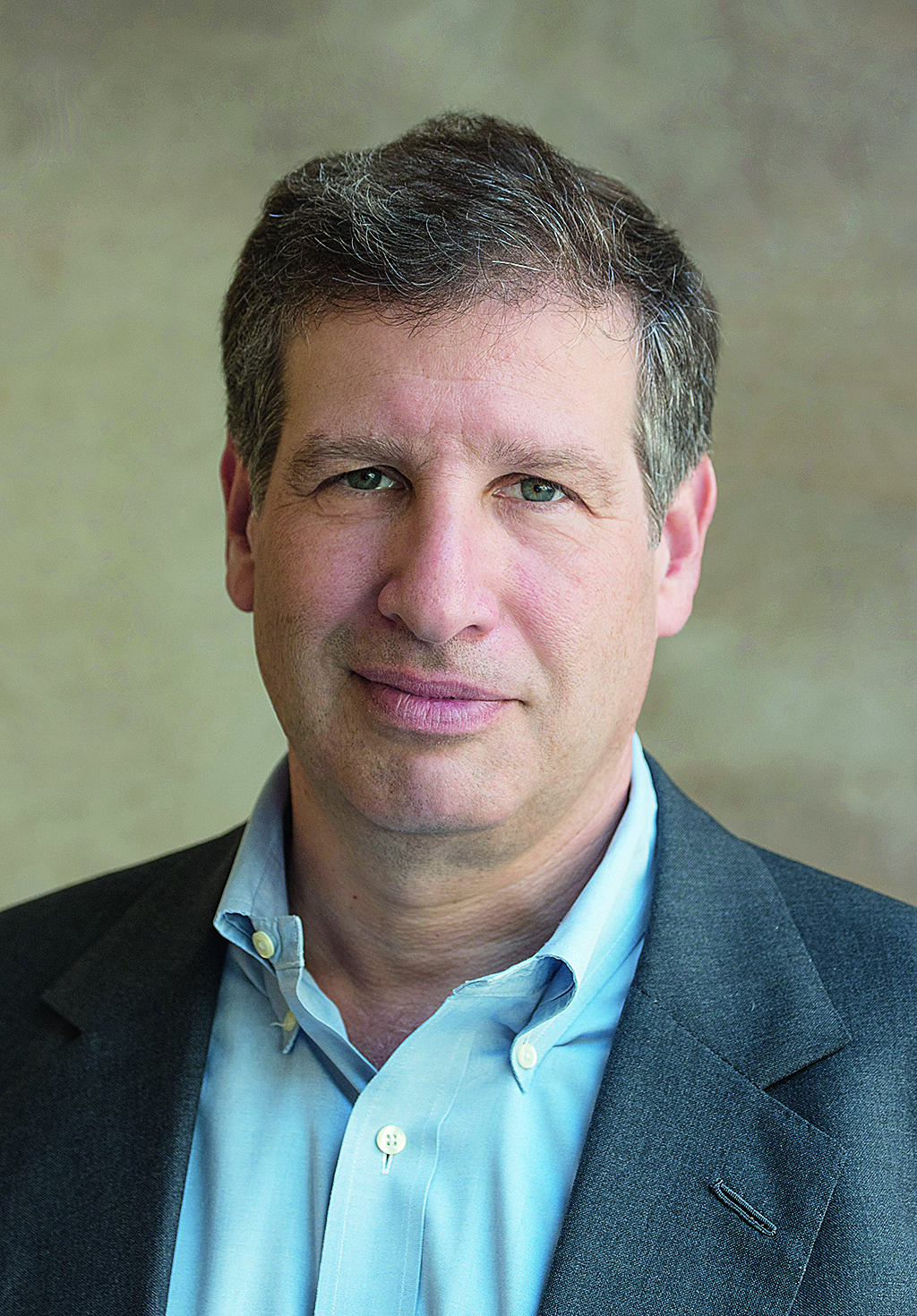Will the war come to an end?
Four analysts share their predictions about the Russia-Ukraine conflict

The Russian invasion of Ukraine has hit the 10-month mark. With western backing, Ukraine has staunchly resisted the incursion of Russia, which is caught up in a costly conflict with no clear exit strategy.
The 2022 deadlock raises obvious questions about 2023 prospects. What factors will determine the outcome of the conflict? Who has time on their side? What could be the outcome of a negotiation and who could win this war?
Four analysts share their predictions with Kathimerini.
GIDEON ROSE
Continued slogging
 The constants in this war seem to be Ukraine’s will and military skill and Russia’s bungling and brutality.
The constants in this war seem to be Ukraine’s will and military skill and Russia’s bungling and brutality.
Western support and Russian endurance have held so far, but either of them could change over the coming year and lead to this war’s ending in 2023.
I hope Russia’s deteriorating position drives Putin to seek an exit around something like the February 24 lines, and give it a one-in-three chance.
I fear western will might crack first and produce a much less desirable settlement, and give that a one-in-six chance.
I expect we are most likely to see continued slogging, with Ukraine gradually gaining ground while suffering still more punishment, and the war dragging on into 2024. I give that a one-in-two chance.
Gideon Rose is the Mary and David Boies distinguished fellow in US foreign policy at the New York-based Council on Foreign Relations and author of “How Wars End.”
MARKUS ZIENER
A compromise with Putin?
 In 2023, will the Russian population’s discontent with the war in Ukraine grow to such an extent that even the Kremlin will no longer be able to escape this mood? Will there be a revolt within Russian President Vladimir Putin’s closest circle of power because the war is not a success? Or will Putin succeed in making even defeat look like victory?
In 2023, will the Russian population’s discontent with the war in Ukraine grow to such an extent that even the Kremlin will no longer be able to escape this mood? Will there be a revolt within Russian President Vladimir Putin’s closest circle of power because the war is not a success? Or will Putin succeed in making even defeat look like victory?
Whether the war comes to an end depends above all on the answers to these questions. Because one thing is also undisputed: The West has clearly sided with Ukraine and it is not to be expected that aid to Ukraine will cease. Even if there should be some war fatigue, the United States is determined to continue military support for Kyiv. And this is what counts.
What war aims will be realistic in 2023? Ukraine’s maximum aims are the liberation of both Crimea and the Donbas, as well as the territories now newly conquered by Russia? Although not impossible, it is not very likely that Ukraine will succeed in ousting the Russian army from all these territories. So Kyiv would have to move away from these goals if it wants peace. Whether President Volodymyr Zelenskyy gives in here depends not least on the security guarantees made to Ukraine – and whether Russia also agrees to them.
But what are Russian security guarantees worth, given recent history? Moscow has repeatedly broken guarantees, most notably the Budapest Memorandum of 1994, in which Russia promised Ukraine the inviolability of its borders in return for Kyiv’s surrender of its nuclear weapons. Moscow did not comply but broke the agreement in 2014.
There would be peace in Ukraine above all if Putin were no longer in power. Any new leader in the Kremlin, even one who barely thinks differently from Putin, would probably end this senseless war for the time being. But how can Putin be ousted from power?
Markus Ziener is a journalism professor at the HMKW University of Applied Sciences for Media, Communication and Management, and a visiting senior fellow at the German Marshall Fund of the United States, both in Berlin.
CHARLES KUPCHAN
Military stalemate, uneasy peace
 The war in Ukraine is unlikely to end anytime soon. On the heels of Ukrainian offensives that have succeeded in taking back roughly half of the territory that Russia occupied since its February invasion, Kyiv is ready to continue to press forward on the battlefield. In the meantime, Moscow will continue bombarding Ukrainian cities and their critical infrastructure while reinforcing its troops in eastern Ukraine. The fighting may subside during the cold winter months, but both sides are poised to take advantage of any respite to regroup and rearm.
The war in Ukraine is unlikely to end anytime soon. On the heels of Ukrainian offensives that have succeeded in taking back roughly half of the territory that Russia occupied since its February invasion, Kyiv is ready to continue to press forward on the battlefield. In the meantime, Moscow will continue bombarding Ukrainian cities and their critical infrastructure while reinforcing its troops in eastern Ukraine. The fighting may subside during the cold winter months, but both sides are poised to take advantage of any respite to regroup and rearm.
When the fighting does finally subside, the war will most likely turn into a new frozen conflict – a military stalemate and uneasy peace. Even with continuing military and economic assistance from NATO members, Ukraine probably lacks the combat power to reclaim all of its territory, including Crimea. Moreover, a Ukrainian effort to completely expel Russian forces runs the risk of escalation; the Kremlin’s resort to a nuclear weapon becomes a realistic option should Russia face full expulsion from eastern Ukraine and Crimea. Instead, a new “line of contact” – similar to the one that emerged in Donbas in 2014 – is likely to gradually emerge.
A preferable, but less likely, outcome is a negotiated truce and diplomatic effort to arrive at a territorial settlement. Even if it would ultimately be up to Kyiv to seek a diplomatic endgame, this option would require western intercession. While the western allies have so far backstopped Ukraine’s valiant effort to defend itself, they may over time become more keen to end the war through diplomacy. The continuing death and destruction, the further outflow of refugees, the disruption to energy markets and food supplies, soaring inflation and economic duress – these and other impacts of the war may prompt the United States and its European partners to encourage Ukraine to seek a negotiated end to the conflict.
For now, Ukraine is determined to keep up the fight, and Russia shows no sign of giving up. More war and an eventual frozen conflict loom ahead. But sooner rather than later, the West should at least try to move Ukraine and Russia from the battlefield to the negotiating table, brokering a diplomatic effort to shut the war down and arrive at a stable peace.
Charles Kupchan is a senior fellow at the Council on Foreign Relations (CFR) and professor of international affairs at Washington, DC’s Georgetown University, in the Walsh School of Foreign Service and Department of Government.
TIMOTHY ASH
Time is on Ukraine’s side
 Ukraine will win this conflict – and likely sooner rather than later – as Russia has no path to victory.
Ukraine will win this conflict – and likely sooner rather than later – as Russia has no path to victory.
The war so far has shown Russia devoid of tactical capability, with soldiers being poorly trained and poorly armed. Russian troops lack motivation as they are fighting for land which they know is not theirs. For Ukraine it’s the opposite – its troops are highly motivated, tactically adept, increasingly better armed.
Russia lacks full battlefield visibility whereas Ukraine is able to see the whole battlefield with the help of NATO satellites and intel and Turkish drones. This is the battlefield gamechanger as Russia can present up its newly mobilized 300,000 troops onto the battlefield only to be wiped out by Ukrainian use of precision kit like HIMARS.
And time is on Ukraine’s side as it will get ever more sophisticated NATO kit, while sanctions mean that Russia will struggle to replace around half its conventional military kit lost in Ukraine.
The longer this goes on for Russia it will see ever more and disproportionate casualties from the 100,000 lost so far, massive loss of blood and treasure. Sanctions will work over time in crimping Russian export revenues and the Russian economy will go into decline.
Putin needs peace, and would undoubtedly accept a ceasefire deal now where he keeps what he currently holds. Ukrainians will not accept that as they have momentum on their side and can go back to February 23 settings on a 12 month view.
Likely we will see further Ukrainian military victories like Kherson or Izium, and eventually the collapse of Russian forces in Ukraine. That would be an absolute disaster for Putin and would risk a regime change in Russia. As is, he can negotiate a withdrawal to February 23 settings and longer-term talks over the future of Crimea and DPR/LPR.
I think Ukraine could accept this. And likely that deal would save tens if not hundreds of thousands of lives on both sides. But what is clear is the longer this conflict goes on the worse it gets for Putin. If he really is an idiot, he fights on.
Timothy Ash is an associate fellow in the Russia and Eurasia program at Chatham House and a senior sovereign strategist at Bluebay Asset Management in London.





